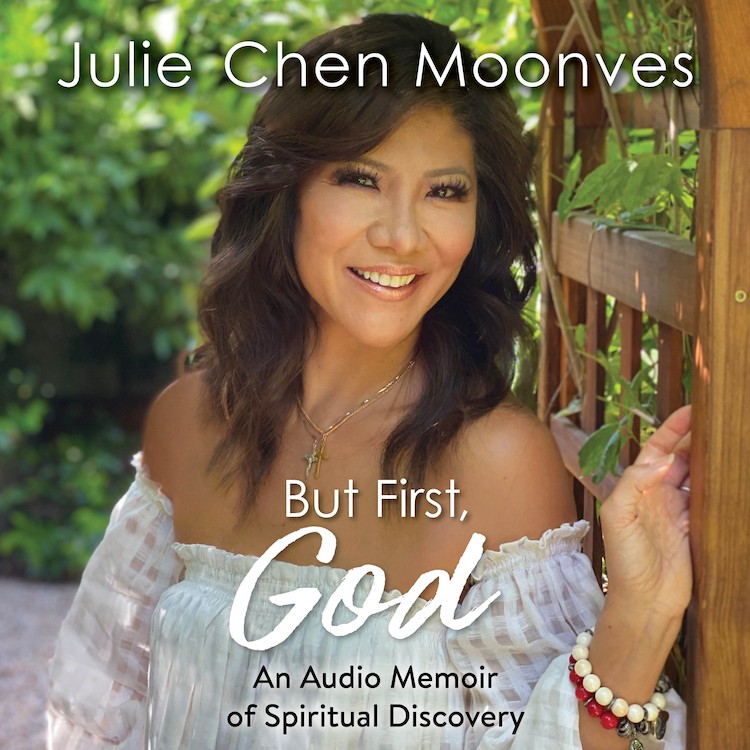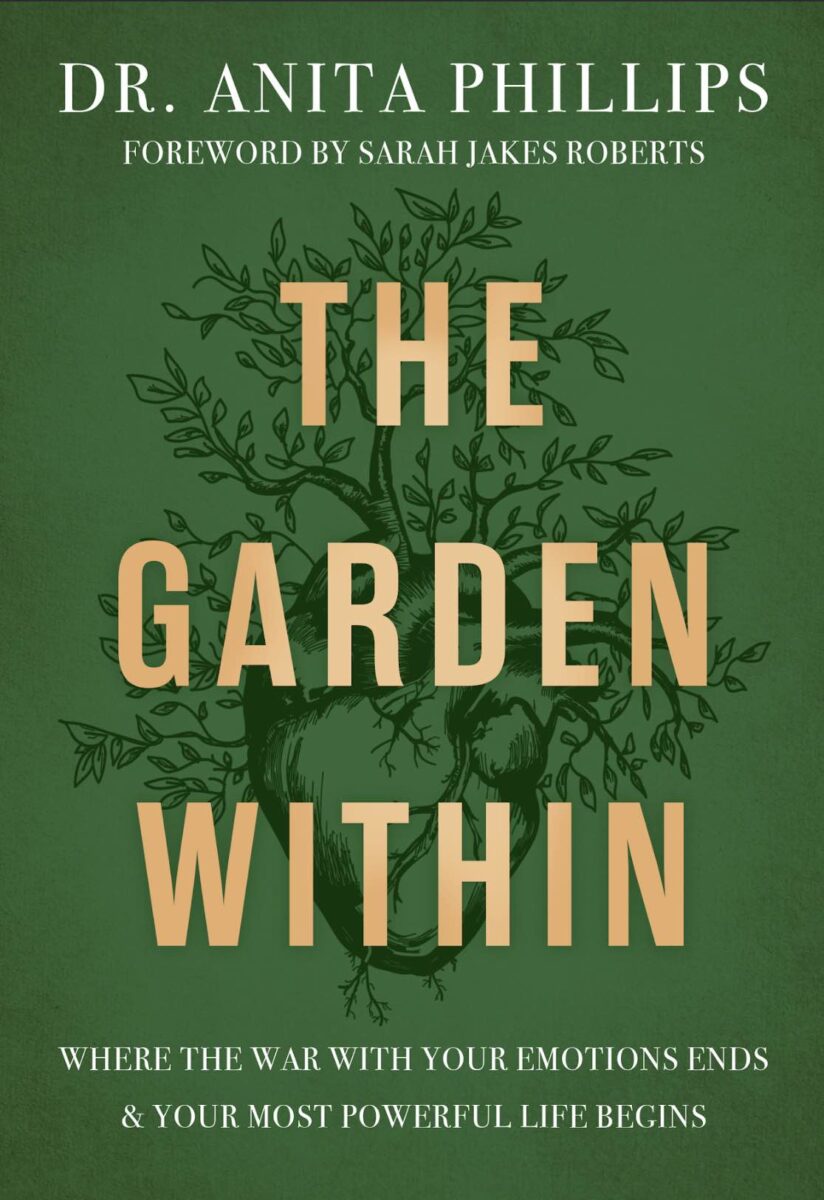Your Emotions Matter to God: Julie Chen Moonves & Dr. Anita Phillips
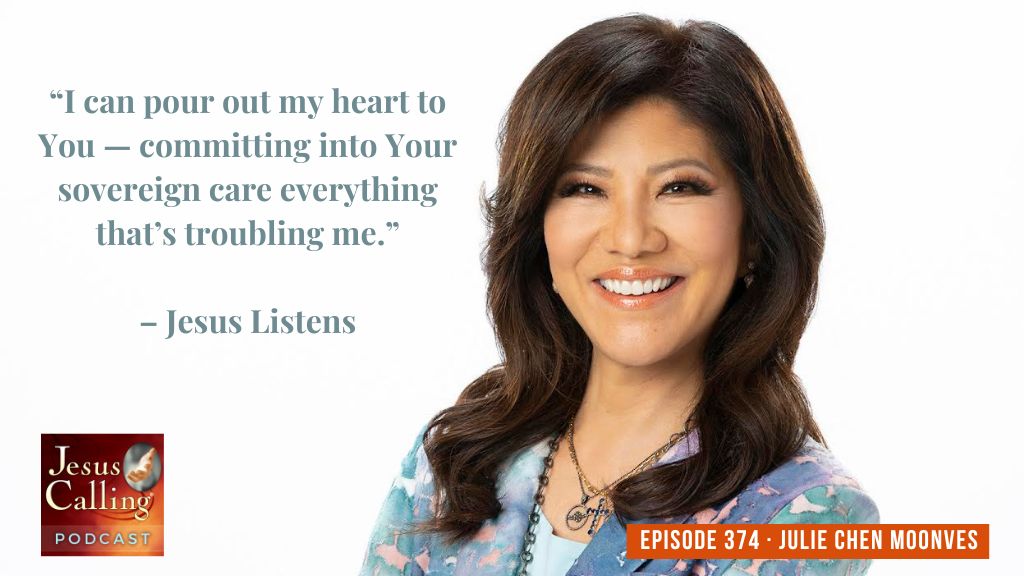
Julie Chen Moonves: Now that I have a personal relationship with Jesus, every relationship in my life has changed. I have more peace. I don’t fly off the handle. I don’t get so emotional. I’m more mature as a human being and as a mom, and I have this peace in my life that I never even knew could exist.
Your Emotions Matter to God: Julie Chen Moonves & Dr. Anita Phillips – Episode #374
Narrator: Welcome to the Jesus Calling Podcast. Have you ever been told that you are “too emotional?” Perhaps there are times we feel like we’re failing because we’re feeling. But the truth is, God created us to be emotional beings. Jesus Himself experienced an intense spectrum of emotions—He embraced the sadness, the loneliness, and the anger that all of us feel—and by meeting those feelings, He was able to respond to people in ways that demonstrated emotional maturity and love.
News anchor and host of Big Brother Julie Chen Moonves always prioritized her career, and committed herself to every opportunity in her path, until she began to notice a deep sense of loneliness, and realized that in her pursuit of success she had tuned God out of her life. When she started to tune back into Him, she found the peace she’d been so desperately longing for. Dr. Anita Phillips has studied the intersections of mental health, faith, and culture—and made the discovery that Jesus was an intensely emotional being, and through His example, we can know that there’s an incredible amount of good that can come when we learn to embrace our emotions instead of running from them.
Let’s start with Julie’s story.
Julie Chen Moonves: I am Julie Chen Moonves, probably best known now as the host of Big Brother, the CBS reality show. However, a lot of people still recognize me as, “Aren’t you that news lady?” And that was my original profession and how I got to where I am today.
Tuning Into Self, Tuning Out God
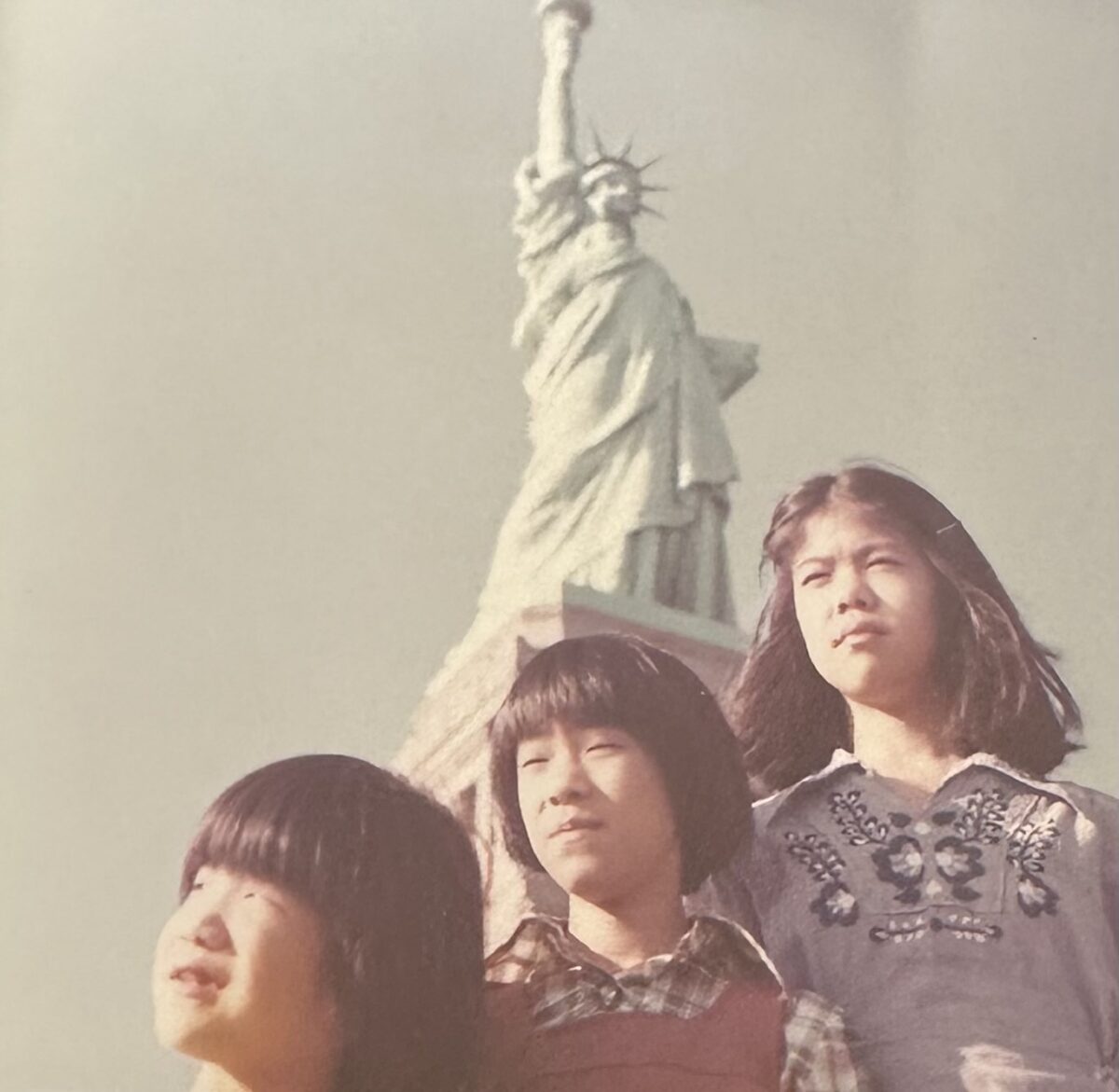
I grew up in Queens, New York, the youngest of three girls. My parents were immigrants, my dad from China and then Taiwan, and my mom, although 100% Chinese, born and raised in Rangoon, Burma.
There were points in my life as a kid I would pray, probably because I saw it on Little House on the Prairie, and it was like, “I pray for my parents and me and my sisters to be healthy, wealthy, and wise.” And it was like by rote.
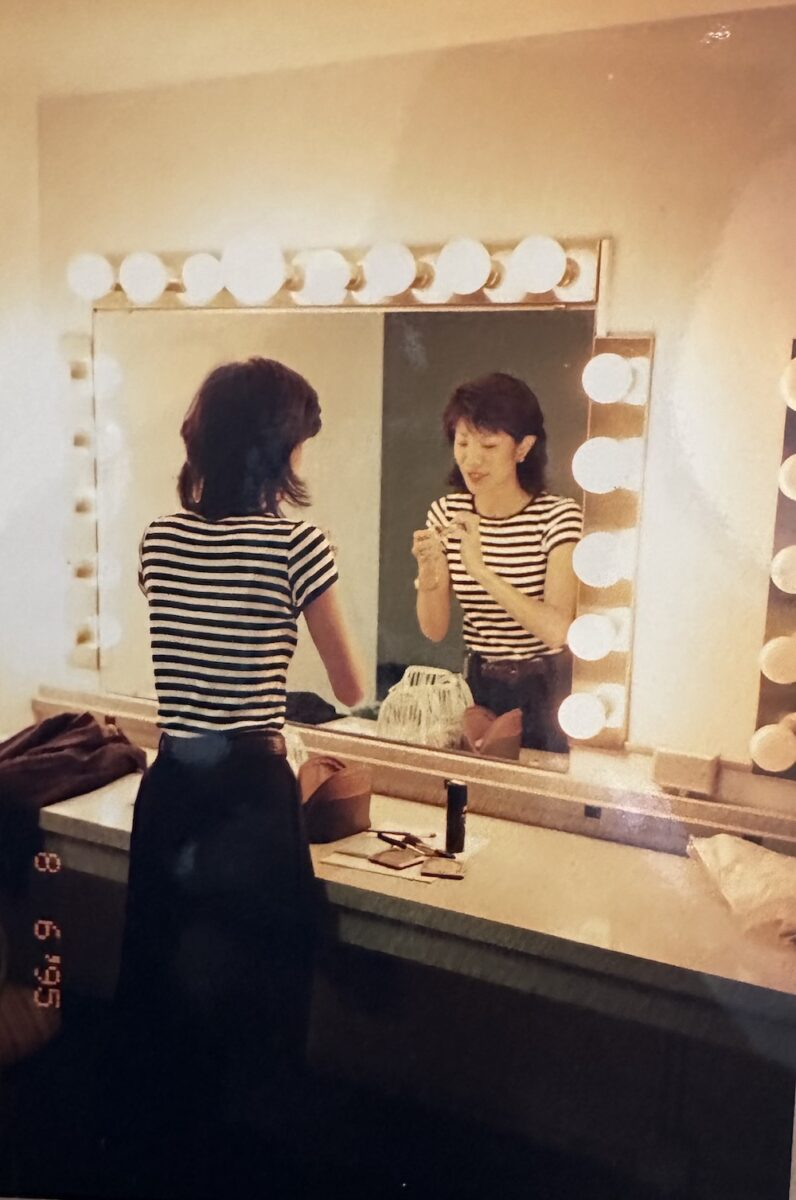
And then I went to college and went to high school. I tuned out God, like many of us do, because I became very selfish. It was like, Oh, you mean everything’s not about me? And then I got into the field of broadcast journalism and being in front of the camera, that’s who is referred to as talent. Talent can have a very inflated sense of self. You know, you’re surrounded by people who treat you differently, whether you deserve it or not.
I was such an egomaniac that I took full credit, or I would check it off as, I got lucky, which now I know there is no such thing as luck. There is no such thing as coincidence. God is in control. God either ordains it or He allows it, but I would be like, Oh, I got so lucky I got that job, or I worked so hard, I earned it. I got what I deserved. And [I was] always patting myself on the back, I was just very, very self-involved. No room for God in the picture.
“There is no such thing as coincidence. God is in control. God either ordains it or He allows it.” – Julie Chen Moonves
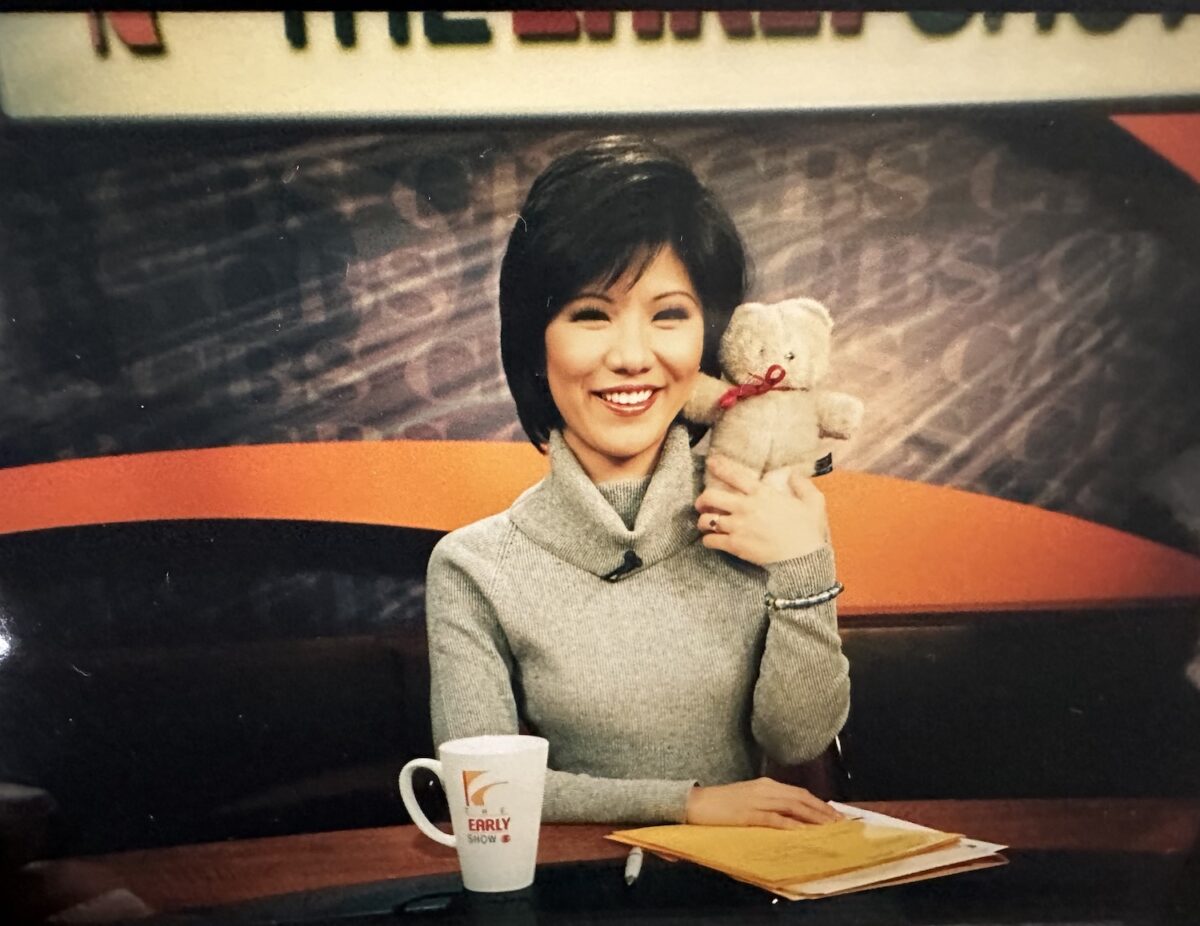
I became a network morning news anchor at CBS News. That got me exposed to network executives, and when it came time to cast who was going to host this reality show called Big Brother, they called me. And it was easy because I already worked for the corporation. And they knew my skill set and they knew what kind of work ethic that I had, and they needed basically, someone who could ask questions.

Then cut to many years [later], I’m juggling both flying back and forth between New York and L.A.—New York hosting and anchoring the morning news, and then in L.A. hosting Big Brother—things start to change. I got married. I decided to start a family, and I knew something had to give. And not as luck would have it, but God’s hands, CBS decided to cast a panel talk show, and we all had to be moms and we all had to be women.

And that’s how I got hired to moderate The Talk and leave morning news, and Big Brother kept going. So although my original dream as a young kid in Queens was to be on 60 Minutes one day or to anchor the evening news—your path, as everyone’s path, you have some detours and some twists and turns that you don’t expect.
If you don’t put God first, what do you have? Everything you have is because of Him, and I didn’t realize that until I was closing in on fifty, because I spent the first forty-eight years of my life ignoring God and having false idols. My career was my false idol. That was the thing I put in front of everything else. Now, I know I have had the career and continued to work in this field because of God, and I have to thank Him for it. I have to give Him the glory.
“If you don’t put God first, what do you have? Everything you have is because of Him, and I didn’t realize that until I was closing in on fifty, because I spent the first forty-eight years of my life ignoring God and having false idols.” – Julie Chen Moonves
It’s easier to be in this world and look at everything just from your lens. Now, I know it’s not about my lens, it’s about His lens. Everything is about His agenda, not mine. That’s what Amen means, it means Thy will be done. Not my will, Thy will.
“It’s easier to be in this world and look at everything just from your lens. Now, I know it’s not about my lens, it’s about His lens. Everything is about His agenda, not mine. That’s what Amen means, it means Thy will be done. Not my will, Thy will.”- Julie Chen Moonves
Crawling Toward God
When things hit a really low point in my life, I didn’t want to go to my mom or my sister or friend for a few reasons. I didn’t want to burden them with my problems. I didn’t want to spread my stress into their brains. And I also knew even if I did, they won’t really know what I’m going through. How could they? They haven’t walked in my shoes. So there was part of me that thought, Even if I went to them with my problems, they’re going to have no idea how to solve my problems, and I knew the only place to turn was to God.
Being someone who was a fully functioning adult at age forty-eight, my prayer life was non-existent. And as I started it, it looked like that of a child. It was intimidating to me. I didn’t know how to approach God. I didn’t know how to pray to Him. I was like a baby learning how to crawl.
So I started crawling towards God, and then I got more comfortable with the power of prayer in my head and with my words. Then I started journaling my prayers, writing in a diary, and something with putting pen to paper and my thoughts down on paper and going through the physical action of writing, that deepened my walk with God and my understanding of who He is and why He created me. So I went from crawling to being a toddler, taking steps, bigger steps. And then I didn’t need the pen and paper anymore. I knew I could pray anytime, anywhere.
God has always been there. I just didn’t give Him the credit. Now, I would say I’m more of a college student. I’m still learning every day. I’ll look at pieces of scripture today that meant something to me five years ago when I started crawling my way towards the Lord, and now I understand it on a different level. I think I understand it more. I get something out of that same piece of scripture that is so much deeper or just different.
The Bible to me never gets old. There’s always something new to learn, and there’s also something new to learn from passages that you’ve read a hundred times. God knows how to give you what you need, depending on what you’re going through at that moment in your life. So it’s this personal relationship I have with Him. It’s just between me and our God, and it is unique. And that’s what makes our God so incredible. He gives us what we need.
“God knows how to give you what you need, depending on what you’re going through at that moment in your life.” – Julie Chen Moonves
Know God, Know Peace
Now that I have a personal relationship with Jesus, every relationship in my life has changed. Whether it’s with my thirteen year old son, I have more peace. I speak to him differently. I don’t fly off the handle. I don’t get so emotional. I’m more mature as a human being and as a mom. And I have this peace in my life that I never even knew could exist. And I was so busy, I don’t even think I was craving it. So my relationship with God, my personal relationship with the Lord, has helped me navigate my life.
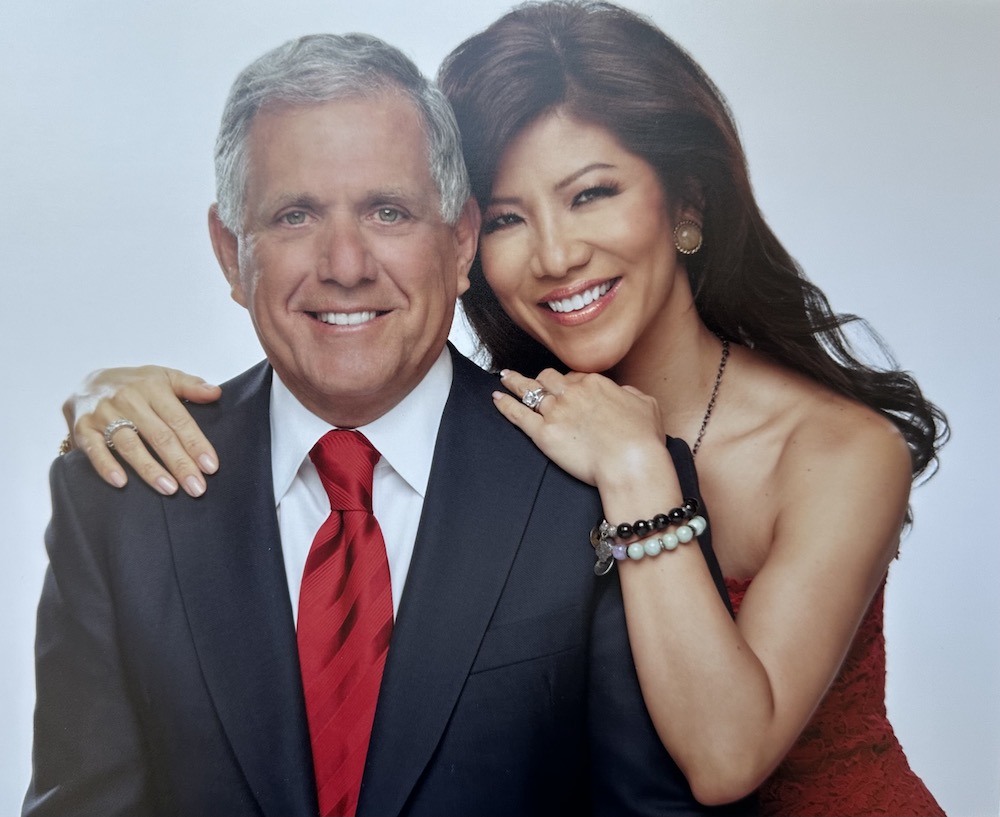
Having God in my life has also improved my relationship with my husband, and every time we pray together as a couple before we go to sleep, you could see our shoulders just kind of melt and calm down. And in the beginning, you know, my husband was kind of like, Okay, because she wants to. We would hold hands, and over time, I’ve seen a transformation in him. You know, it used to be like, Dear God, please protect our kids and our family. Watch out for our loved ones. Now I hear him giving thanks.
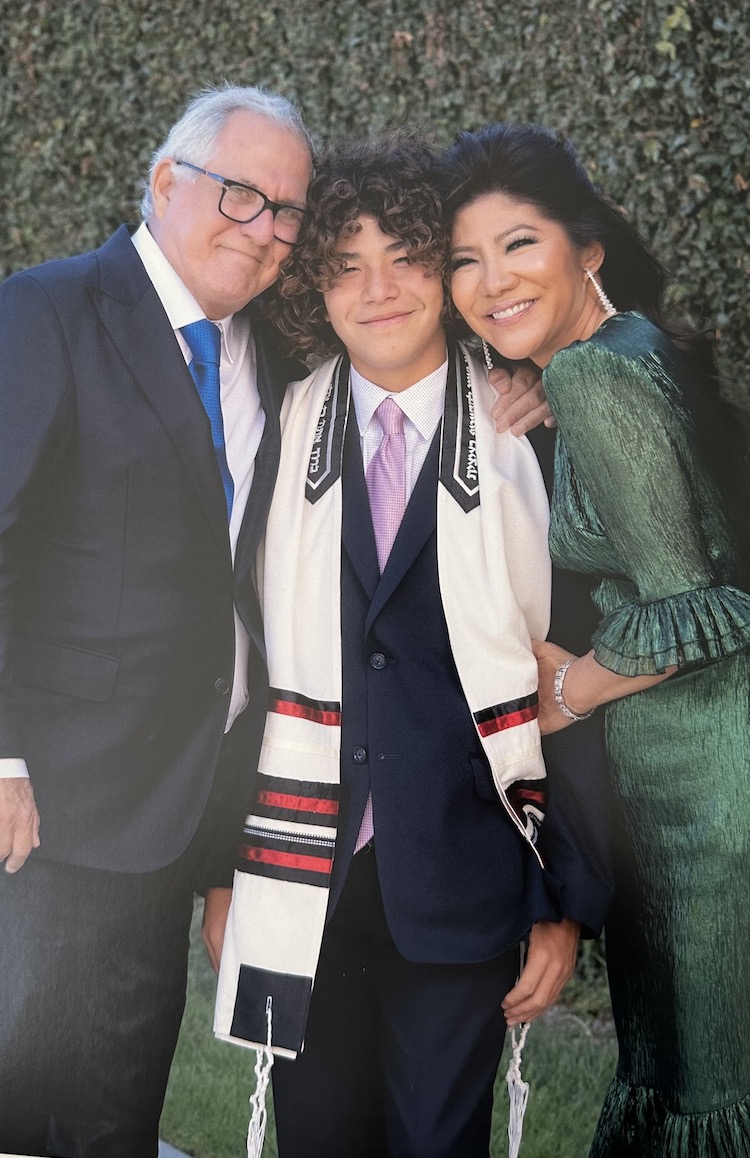
He has changed how I live, what I prioritize, how I think, how I speak, how I act, how I treat other people, whether I know them or not. Tomorrow is expected, but it is not promised. So having God first in my life has made everyone else in my life have a better relationship with me. It’s a trickle-down effect.
“He has changed how I live, what I prioritize, how I think, how I speak, how I act, how I treat other people, whether I know them or not. Tomorrow is expected, but it is not promised. So having God first in my life has made everyone else in my life have a better relationship with me. It’s a trickle-down effect.” – Julie Chen Moonves
I realize now—and I knew this then —I was running on fumes. I was always exhausted. And I wouldn’t say that I was unhappy. I was just tired. And I felt accomplished because of all these goals, career-wise or family-wise. But I didn’t have the peace that I now have. And why would I have had peace in my life back then? If you know Jesus, you know peace. If you have no Jesus, you have no peace. I just wasn’t smart enough back then to realize that.
“If you know Jesus, you know peace. If you have no Jesus, you have no peace.” – Julie Chen Moonves
I’m learning how to be more Christlike, if you will, in my walk with God, because that’s why He created us. He created each and every one of us in His own image, but He also—He’s a gracious God—gives us free will. So now that I know what I know, who am I going to choose to be when I show up in the world when I wake up and get out of bed in the morning? I know we have it in all of us to be a reflection of Him because that’s how He created us, and behavior is contagious. If I can show up in the world and try to say and do what Jesus would do, that’s going to have a ripple effect. It’s like taking the high road. It’s taking the only road, the ultimate road.
Narrator: Julie closes her time with us by reading a prayer from Sarah Young’s 365 day prayer devotional, Jesus Listens.
Julie:
Wonderful Counselor, I know that You understand me far, far better than I understand myself. So I come to You with my problems and insecurities, seeking Your counsel. In the Light of Your loving Presence, I can see myself as I truly am: beautifully clothed in Your flawless righteousness. Even though Your righteousness is perfect, I realize I will continue to struggle with imperfections— mine and others’—as long as I live in this world. But Your Word assures me that my standing with You is secure. Nothing in all creation will be able to separate me from Your Love!
Because You’re such a great Counselor, You help me recognize truth and live according to it. So I can be honest and open when I bring You my concerns. The Bible tells me that knowing the truth will set me free, and Your wonderful counseling is freeing me from sin and shame.
Lord Jesus, You are teaching me to delight myself in You above all else. I rejoice that You really are the deepest Desire of my heart. Please keep me close to You—joyously aware of Your loving Presence.
In Your joyful Name, Jesus,
Amen
Narrator: To learn more about Julie Chen Moonves, follow her on social media and check out her new audio memoir, But First, God.
Stay tuned to Dr. Anita Phillips’ story after a brief message.
Spreading Hope With Samaritan’s Purse
At Samaritan’s Purse, we bring spiritual and physical aid to hurting people around the world. We go into dangerous situations because in disaster and disease, in war, Jesus calls us to love our neighbor, to heal the sick, and feed the hungry, restore the broken. All who work and volunteer with Samaritan’s Purse follow the example of Jesus. We go to serve, not to be served. And we go in Jesus’ name. Join us at www.samaritanspurse.org.
Our next guest is trauma therapist and life coach Dr. Anita Phillips, who found her niche at the intersection of faith, culture, and mental health. Dr. Anita shares why it’s critical that we embrace our emotions, because even Jesus had them—and despite a prevailing sentiment in our world that says to “put on a brave face,” there is truly nothing braver than embracing all that God created for us to feel.
Dr. Anita: Hi, my name is Dr. Anita Phillips. I am a trauma therapist, a life coach, and a minister.
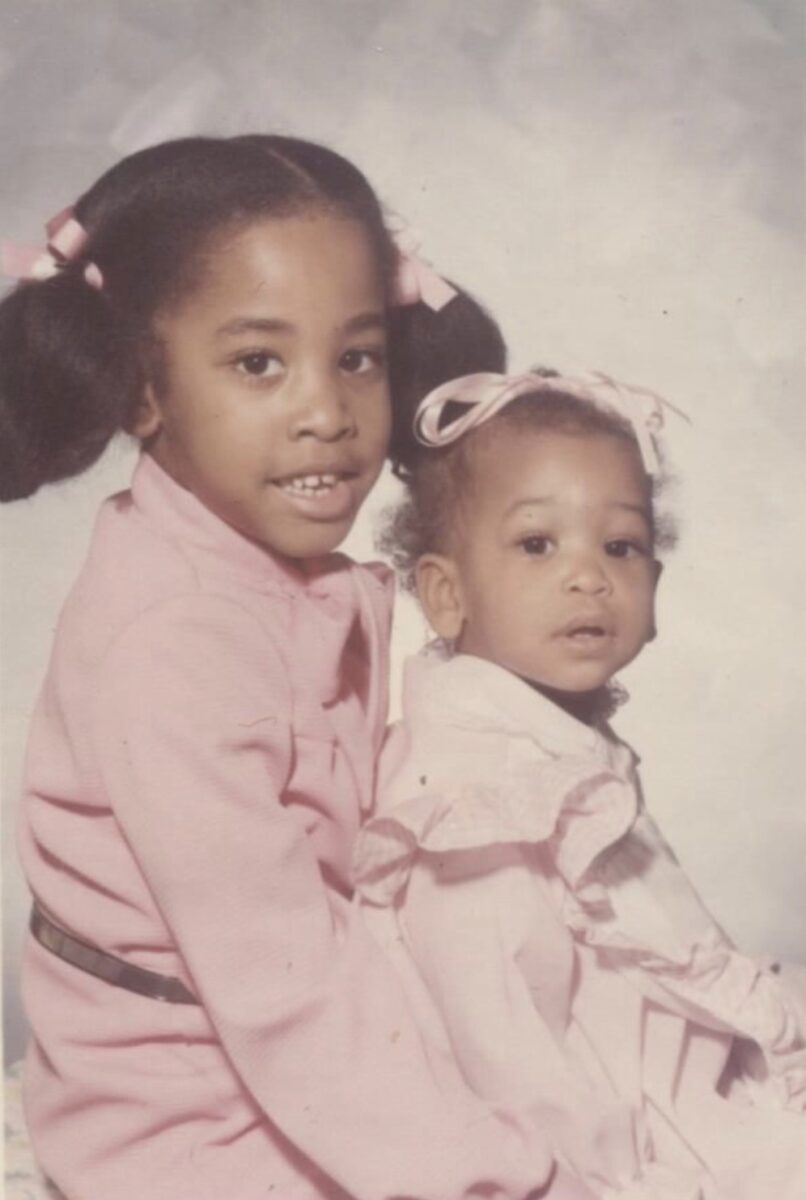
I am a third generation pastor’s kid, so I come from a ministry family. I’m one of three children, and growing up my older sister had a serious mental illness that began to manifest when she was very, very young. It shaped my life in every way, and that began the faith and mental health journey for me at the tender age of six years old.
The question being, “If this is a spiritual attack, why are we not able to solve it with spiritual tools?” We were praying and rebuking the enemy, and my sister was still seeing these things. And so it left a lot of questions at the intersection of faith and mental health, and I have spent my life in the pursuit of those answers.
Faith Explained by Botany
When I was a student many years ago, when I took my first neuroscience class, I was astounded to see that a neuron looks exactly like a plant—seedlings, trees that come in all shapes. And when I saw that, I was so deeply struck in my spirit.
As a professional therapist who is also a Christian, there are always questions in the field about how we integrate Christianity, psychology, science. I like to call it the Biology/Psychology/Theology intersection, and we’ve used the idea of integration for a long time, which is how can we get them to work together? But I embrace a concept I call translation. How does what I’m reading in my Bible translate to the issues that psychology is asking about, which is our feelings, our thoughts, and our behaviors? And then psychology is a behavioral science, but also the biology beneath that. What does the Bible actually say about these topics and how do we translate what the Bible has to say? And in my pursuit of this answer—how do we translate—the Holy Spirit led me to a beautiful place: a garden. It turns out the answer is in the botany.
God created gardens to give us an understanding of how He created us. Eden wasn’t just about where we lived, it was about how we function. And each element of the garden shows us how our spirit, our heart, our mind, and our bodies and behavior work together.
“God created gardens to give us an understanding of how He created us. Eden wasn’t just about where we lived, it was about how we function.” – Dr. Anita Phillips
If you really think about it, so many scriptures point us to trees to understand ourselves, that we would be like a tree planted by rivers of water, that we would be well-watered gardens, that He would plant us in good land. The very first command given to the man and the woman in the garden was to be fruitful, and so we’re compared to trees more than anything else in Scripture. And here I am staring at a neuron, the building block of the mind, and it looks like a tree.
We see in Matthew 13, Jesus tells us about a sower who goes out and sows. He identifies the seed as a word, and when the word takes root, it becomes a belief. That’s a spiritual part of us—our belief system—and then He says that the soil is the heart, and Jesus identifies the different types of soil in the parable of the sower using emotional descriptors. And so He shows us how emotion interacts with the seeds that fall on our hearts, the words that we either believe or don’t believe, and then we always know the Bible shows us that fruit is behavior.
The seed is a spiritual part of us, the heart is our emotional life, the tree is the mind, and then the fruit is our behavior. So those are the questions that psychology is asking about our beliefs, our emotions, our thoughts, our behaviors. And here it is, Jesus giving it to us and showing us how they all work together.
Jesus Had Emotions, Too
When we look at Jesus’s life, Jesus was intensely emotional. We see Jesus standing in front of the tomb of Lazarus with tears streaming down His face. He’s crying in public. Most of us would not want to cry in public, but Jesus is crying in public.
We know He was experiencing the emotion of sadness, even though He knew He was about to raise Lazarus from the dead, even though He knew He would be raised from the dead, He still cried. Yet so many Christians say, “Well, if I know I have victory in God, I don’t have to feel sad.” Well, Jesus knew the end from the beginning, but He cried. Jesus flipped tables in the temple with anger. Jesus was shaken, His body was shaken with the emotion of fear in Gethsemane. He was crying out to God who could save Him from death. Why would He cry to not be crucified, except that the idea of the pain was overwhelming Him—we call that fear.
It goes back to the cornerstones of our culture philosophers like Plato, and the Stoics who thought through their own views about emotion, and even though they lived before Jesus, that part of our culture that viewed emotion as something that causes us to lose control or something that is less than intellectual, less than virtuous, causes us to believe negative things about emotion. And then when the Christian church was developing, some of that culture got pulled in. And so the idea became that Christian perfection included this extensive capacity for emotional control, but my concept of Christian perfection is Jesus. And I saw an intensely emotional Jesus walk this earth.
“My concept of Christian perfection is Jesus. And I saw an intensely emotional Jesus walk this earth.” – Dr. Anita Phillips
Every single time Jesus displayed an intense emotion, something miraculous happened afterwards. He cried, then He resurrected Lazarus. He flips tables, and then He heals people in the temple. He cries out to God, begging Him to let Him be delivered from this crucifixion, and then He walks out of Gethsemane and soldiers are knocked off their feet by His voice. Every time Jesus allowed the full expression of His emotion, power followed, and I never once saw Jesus repent for feeling. Hebrews 4:15 says that “We have not a high priest who cannot be touched by the feelings of our infirmities, tempted in every way, yet without sin.” Jesus did in fact feel everything we feel—and I believe He did, because I believe my Bible—then no emotion is a sin, because Jesus felt it all and He never sinned.
“Every time Jesus allowed the full expression of His emotion, power followed, and I never once saw Jesus repent for feeling.” – Dr. Anita Phillips
We must recognize that emotion is a bodily experience and that we have to allow ourselves to be in its presence, to feel it, and allow it to pass through us just as Jesus did. Whether that’s a verbal expression or physical expression of that emotion, we saw Jesus do all of those things so that they can flow through and not drown the seeds of the words in our heart.
“We must recognize that emotion is a bodily experience and that we have to allow ourselves to be in its presence, to feel it, and allow it to pass through us just as Jesus did.” – Dr. Anita Phillips
And so we must ask the Holy Spirit to constantly pull our cultural scales from our eyes so that when we look into the sacred pages of the Word, we see Jesus for who He is, calling us to be like Him. Let this mind be anew, which is also in Christ Jesus. That mind was emotional.
In fact, we only ever hear Jesus calling us from a place of heart. Jesus is recorded using the word mind only once in the Gospels, and that’s when He tells us to love the Lord thy God with all your heart and with all your soul and with all your strength and with all your mind. He’s telling us how to love the one time He even uses the word mind. And so, yes, we have to untangle our cultural predispositions when we look at Scripture. Every time those scales fall from our eyes, we see a more beautiful image of Jesus and a more clear image of how we ought to walk our lives out on this earth.
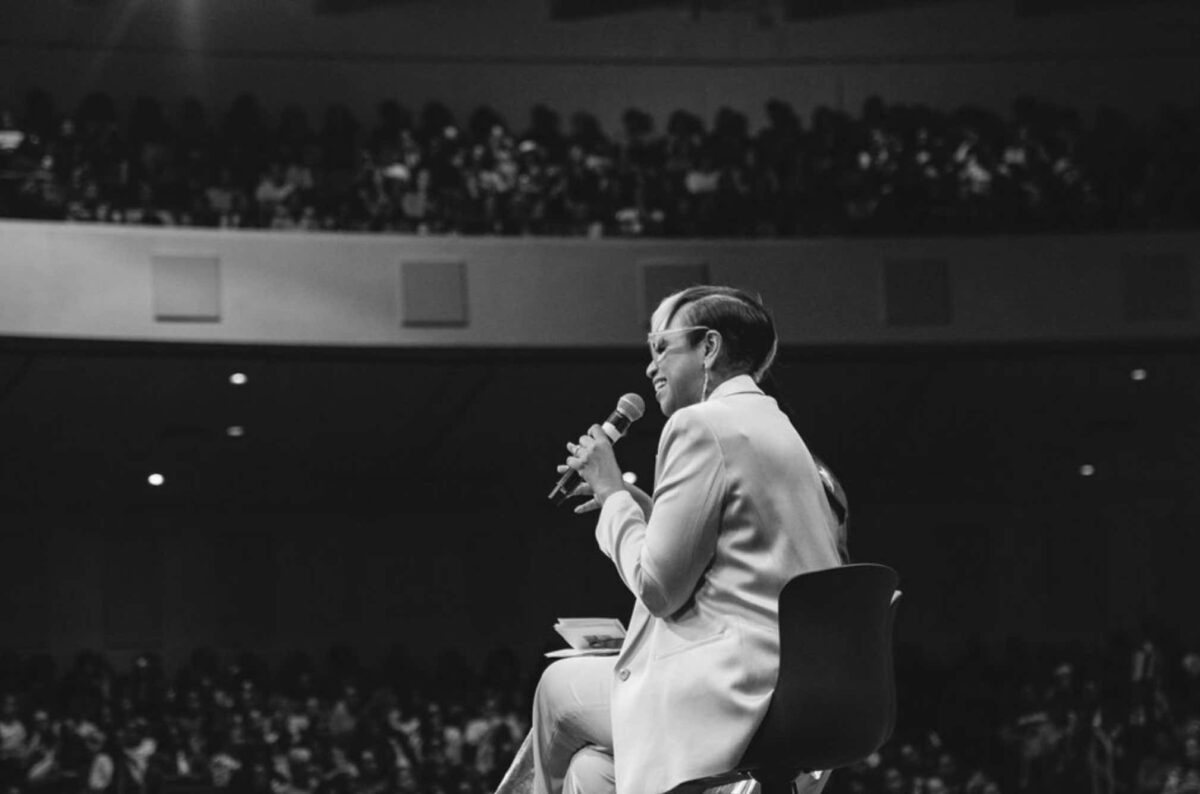
I decided the next time I felt like crying, I absolutely would. I decided that the next time that I was scared and confused, I would cry out to God like Jesus did, and when I started being real with God, I started being more real with myself. And then I came to the confidence to be real with others. And so now I’ve cried while teaching a Bible lesson at church. I don’t withhold those things because there is nothing unholy about my emotions, and my emotions matter so much to God.
“There is nothing unholy about my emotions, and my emotions matter so much to God.” – Dr. Anita Phillips
Emotions Reveal a Need
One of the things that emotions teach us is that we are in need of something. Emotions let us know that we have a need. When the soil is dry in a plant in your house, what is your response? You water it. This plant needs water. The soil needs water. And so our hearts let us know what we need. Sadness says I need connection. Anger says I need value, I need boundaries. We get angry when something valuable is treated less than valuable. If I see a child being bullied, I get angry because the value of that child is not being shown. That child is too valuable for that treatment. So I get angry.
When I’m experiencing the emotion of fear, I need to feel safe. So we have to slow down and ask, What is this thing that I need? And we don’t like to need, again, because culturally [it’s seen as a] weakness. But Hebrews 4:16, it says, “So because of this, I can go boldly before the throne of grace in my time of need.” And so emotions remind me I need this connection. I can go to God and say, “God, I feel so disconnected today. I’m so sad. I feel disconnected from my purpose. I lost my job, I’m confused, I feel so sad, I need connection. God, I need to feel safe. God help me to have the boundaries necessary to protect the value that you say I have, my internal worth.” I come to God for my needs.

I’m going to spend time with people who treat me with value. I need safety. I’m going to call a friend and say, “I’m so nervous. Can you come with me to this speaking engagement or to this job interview and wait for me in the lobby? I want to feel safe, your friendship makes me feel safe.” Once we know what we need, then we can get our needs met. But when we refuse to get our needs met, when we refuse to water the soil of our hearts with what it needs, we undermine our entire life. Grab your negative thought, take it captive. But if you don’t check on the soil the thought grew from in the first place, guess what? That thought will grow back. Touch your heart first. Healed hearts quiet troubled minds.
“Once we know what we need, then we can get our needs met. But when we refuse to get our needs met, when we refuse to water the soil of our hearts with what it needs, we undermine our entire life.” – Dr. Anita Phillips
Your Heart is Valuable to God
Jesus Listens, November 8th:
Trustworthy Lord,
My times are in Your hands. Your holy hands are absolutely capable of caring for me and meeting my needs. Please help me relax in Your sovereign watchcare—trusting You to do what is best. I know it’s safe to commit both the “whats” and the “whens” of my life into Your hands because You are utterly trustworthy.
I realize I’ll have to submit to the reality of time as long as I remain on this side of heaven. When I’m excitedly looking forward to a future event, I yearn to fast-forward to that delightful day. But my longing doesn’t change the passage of time; I must wait. When I am suffering, I long for relief—and want it as soon as possible—but I must wait for that too.
Lord, You live above the tyranny of time. In fact, You are its Master. Whenever I’m struggling with having to wait for something, I need to turn to You in trusting acceptance—rather than fight against what I cannot change. I rejoice in knowing that You, the Master of time, understand my struggles perfectly and love me with an everlasting Love.
In Your merciful Name, Jesus,
Amen
Your heart is valuable to God. Your emotions are valuable to God. You are not failing for feeling. In fact, your heart is the soil of your life, and God created it that way. It’s hard to keep this shift because of what we’ve believed about emotions for so long, but I encourage you to pray and ask God to help you to be conformed to the image of His son Jesus, who never feared a single emotion, but expressed Himself authentically in the presence of both God and His friends. It will change your entire life, and I’m so excited for the power it’s about to bring into your world.
Narrator: To learn more about Dr. Anita, check out her website, www.anitaphillips.com, and be sure to check out her new book, The Garden Within, available at your favorite retailer.
If you’d like to hear more stories about embracing our God-given emotions, check out our interview with Dr. Gary Chapman.
Next week: Kerry Washington
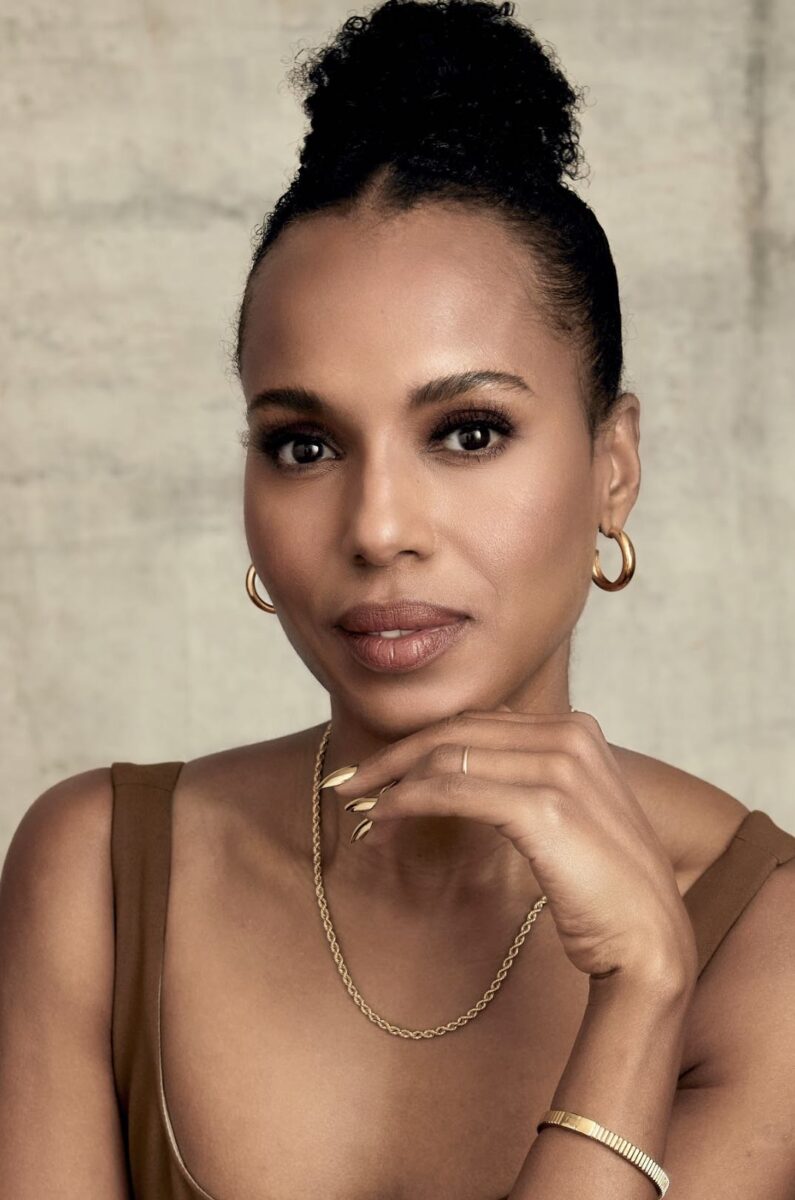
Next time on the Jesus Calling Podcast, we’ll hear from actress Kerry Washington, who shares her process to uncovering a sense of true belonging through her relationship with God.
Kerry Washington: I’m coming to the reality that my prayer and meditation practice should always be evolving, because I’m always evolving, and my relationship with God is always evolving. And sometimes I think those ebbs and flows in life happen to invite us to get closer to goodness, closer to faith, closer to God.
